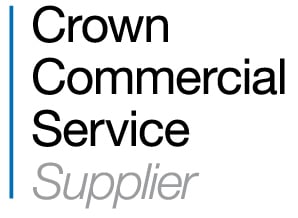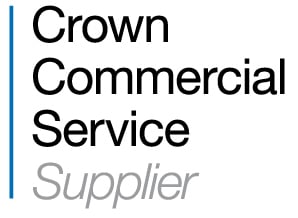Data and Records Management in the Civil Service

This is an open programme and an in-house training course, which we can deliver either online or in person. For further information and pricing contact [email protected] or phone on +44 20 7661 7817.

Global Government Forum, as part of Pendragon International Media Ltd, have been named as a supplier on Crown Commercial Service’s Learning & Training Services DPS Framework. All our Learning and Training services are included in the framework.
Crown Commercial Service supports the public sector to achieve maximum commercial value when procuring common goods and services.
Overview
One of the most commonly identified group of problems facing civil service departments in terms of accessing, making effective use of, and sharing data and information, are the issues of data quality, data storage, legacy records and the lack of interoperability that this causes. Having in place proper records management processes and procedures is key to tackling this problem and to enabling organisations to make effective use of the vast amounts of untapped data they hold, including sharing data appropriately across departments and with other public sector organisations.
This course is designed to provide a comprehensive introduction to the subject of data governance and records management in the civil service and the wider public sector. It covers all the main knowledge you need, explains the terminology, examines what processes are involved, and explores the benefits of good data and records management for everyone working in the civil service, whatever your role or level.
Who is the seminar designed for?
The seminar is designed for public servants at all levels, who need to acquire a deeper understanding of the importance and uses of data management and good records in their work. It will be of relevance and interest to people at all levels of seniority, as the subject of information and records management cuts right across roles and grades.
Benefits of attending
You will be provided with a clear and comprehensive overview of the subject of data and records management in the civil service, and you will understand how it underpins efficiency, accountability and risk management. You will learn the benefits of best practice in capturing, using and protecting information and records in all formats.
Learning outcomes
You will:
- Understand the importance of effective data management and good record-keeping
- Learn about the scope of records and data in various forms
- Understand the legal, business and ethical drivers for effective information and records management
- Gain insight into the best practices for managing records throughout their lifecycle
- Understand how records management is implemented and the roles that everyone has to play
- Understand how records management can assist in classifying and accessing legacy organisational data
Agenda
Introduction
- Definitions and terminology relating to information, data and records management. Exploring and demystifying the jargon; and understanding what makes up a “record”.
- Why does it matter? Exploring the drivers for and benefits of good data and records management, including compliance and operational aspects. This includes the legal and regulatory framework, such as Public Records Acts, the Civil Service Code, Freedom of Information, Data Protection and the Inquiries Act 2005. It also includes the growing impact of using Artificial Intelligence (AI).
The Governance Framework
- Exploring the concept of information asset management. Understanding the interrelated disciplines that enable the effective handling and management of records throughout their lifecycle.
- The core framework of policies, procedures, roles and responsibilities, training and awareness that will deliver effective records management.
Record Creation and Capture
- Key principles for record quality and compliance (including data protection).
- The Government Security Classifications Policy (GSCP) in the UK
- The use of electronic records systems.
- Suitable controls of keeping physical records.
- Approaches to naming, classification and organisation.
Implementing Data and Records Management Day-to-Day: Session One
- Creating “good” records; a look at accuracy, authenticity and other qualities.
- Filing and finding – storing data and records appropriately in approved systems.
- The purpose of records retention, disposal and the transfer rules – what to keep?
- Access, security and sharing considerations.
- Continuous implications of enabling best practice in Data Protection and Freedom of Information.
Implementing Data and Records Management Day-to-Day Session Two
- Considerations when staff leave or move, including Machinery of Government changes.
- Consideration if new projects are commenced or new system or processes are introduced.
- Identifying information, data, knowledge and records risk.
- Working with the Knowledge and Information Management (K&IM) team on developing and implementing suitable procedures.
Final Questions, Discussion and Close
Trainer – Reynold Leming

Reynold Leming is an experienced information governance professional who has worked within the document and records management industry since 1995. He has acted as lead consultant on numerous information management projects within the public, private and voluntary sectors, combining his experience with excellent written and verbal communications skills. He has also developed and delivered a range of training courses and frequently speaks on Information and Records Management at conferences and various industry forums.
Reynold has particular skills in developing Information and Records Management policies, procedures and processes for both physical and electronic records. He also has wide knowledge of the Electronic Document and Records Management (EDRM) / Enterprise Content Management (ECM) technology and its specification, procurement and implementation.
He is Vice Chair of External Engagement for the UK and Ireland Information and Records Management Society.
Our L&D ethos
- We’re here to enable you to perform better!
Our L&D team
- All former practitioners, now professional trainers, our L&D team have provided open and bespoke solutions for more than 100,000 public servants from 120 countries
Our L&D seminars
- A vast reservoir of international, transferable knowledge and perspectives about effective, delivery-focused approaches to working smarter in the public sector
Please contact us for further details, or to arrange a conversation with a member of our training team to discuss in-house delivery options, including tailoring the day’s training to your specific organisational development needs.
You can email David Leakey on [email protected] or phone on +44 20 7661 7817.

Crown Commercial Service supports the public sector to achieve maximum commercial value when procuring common goods and services.








